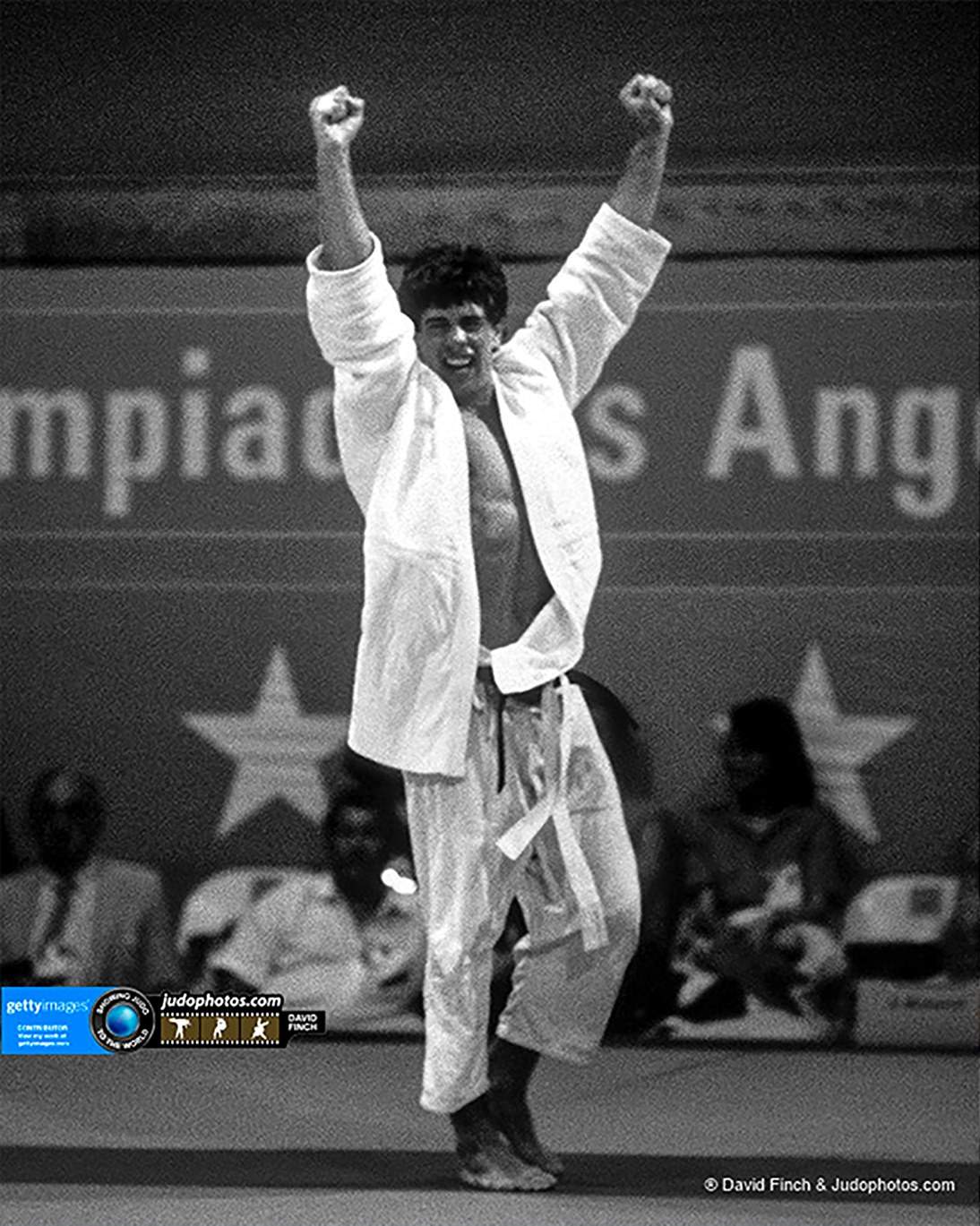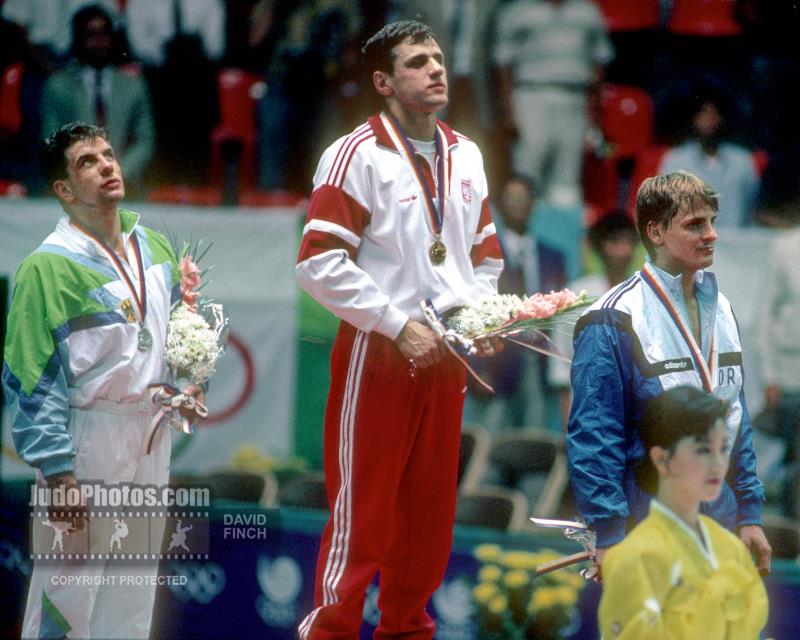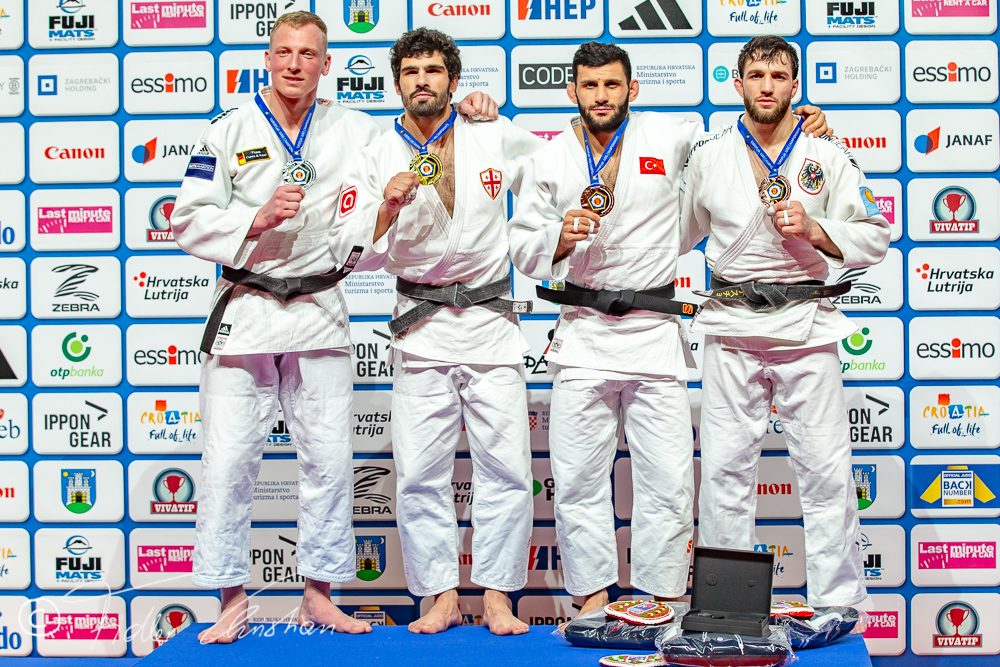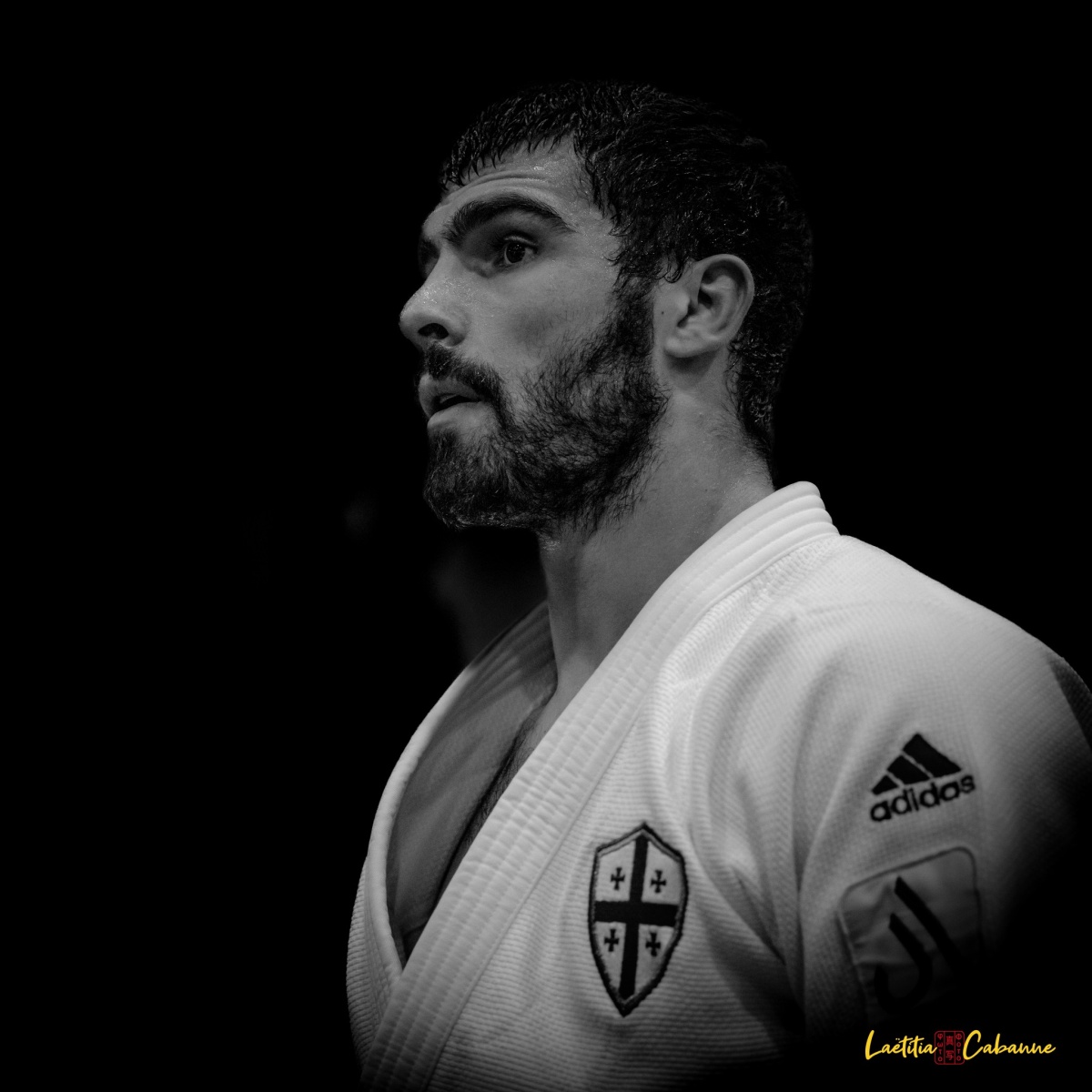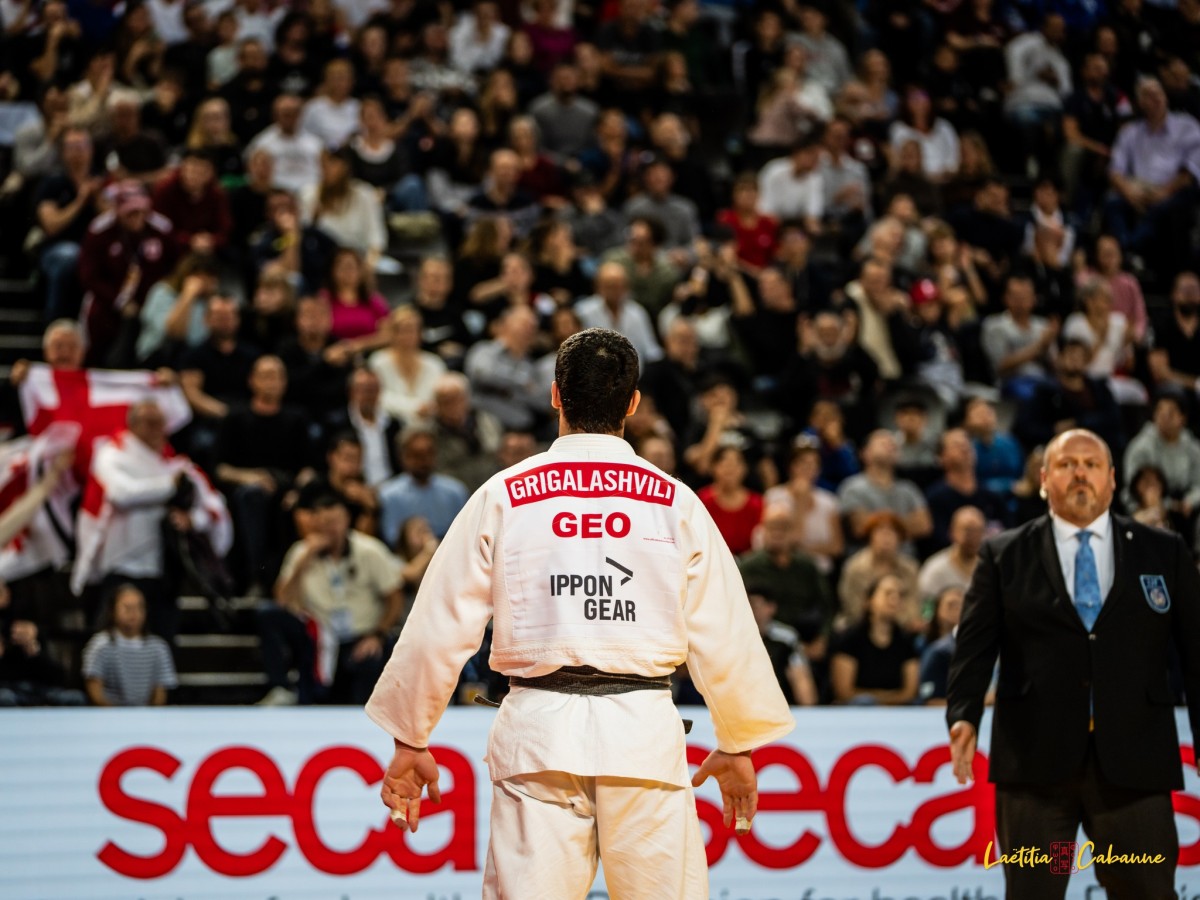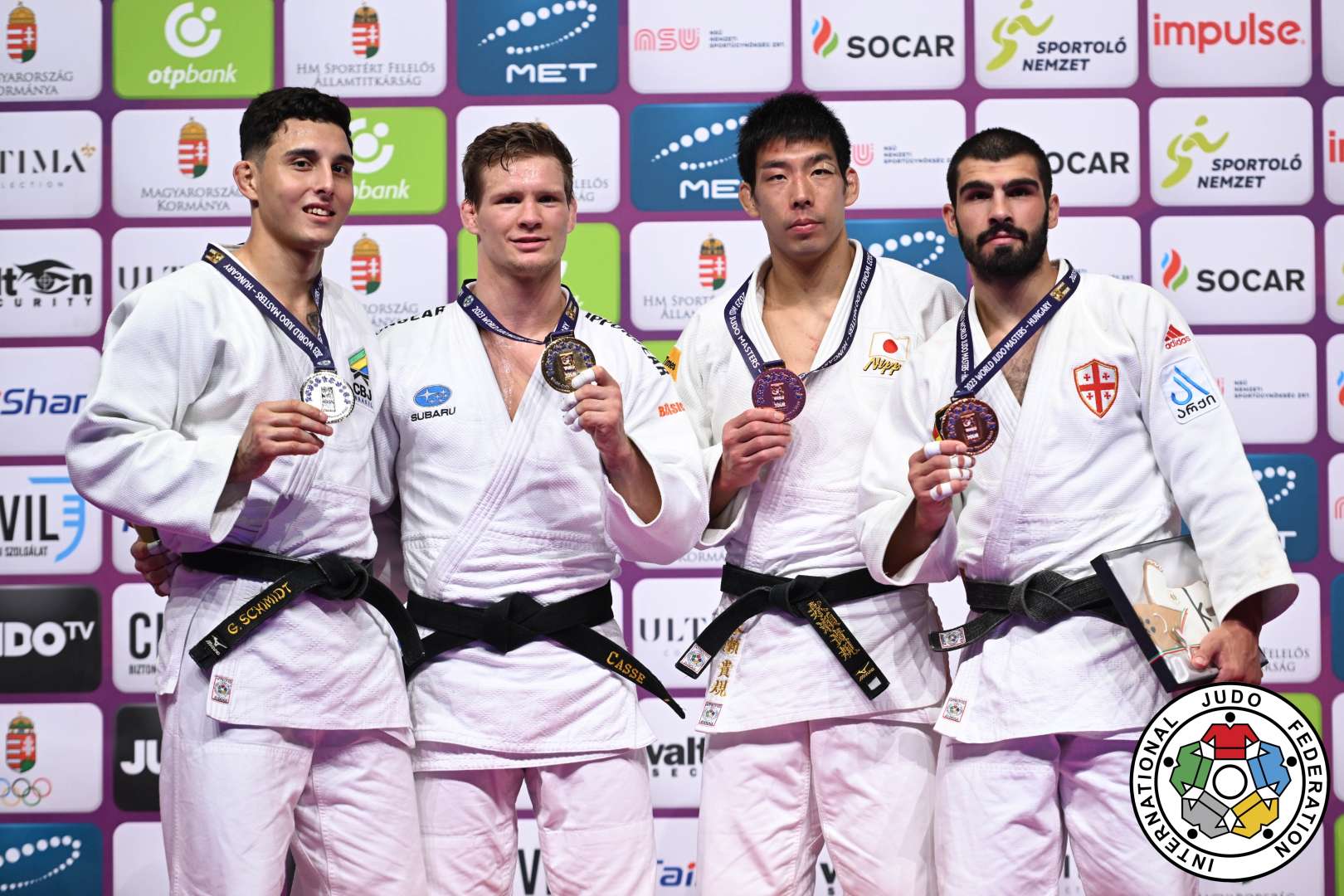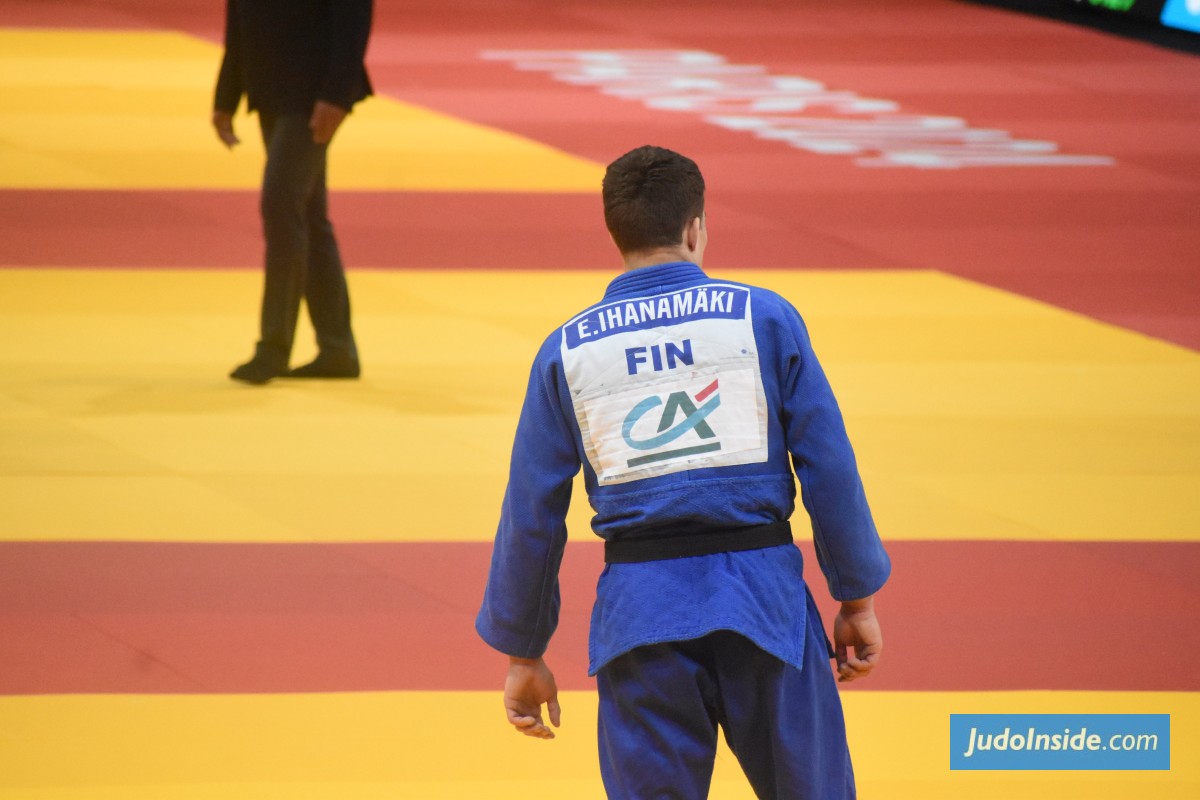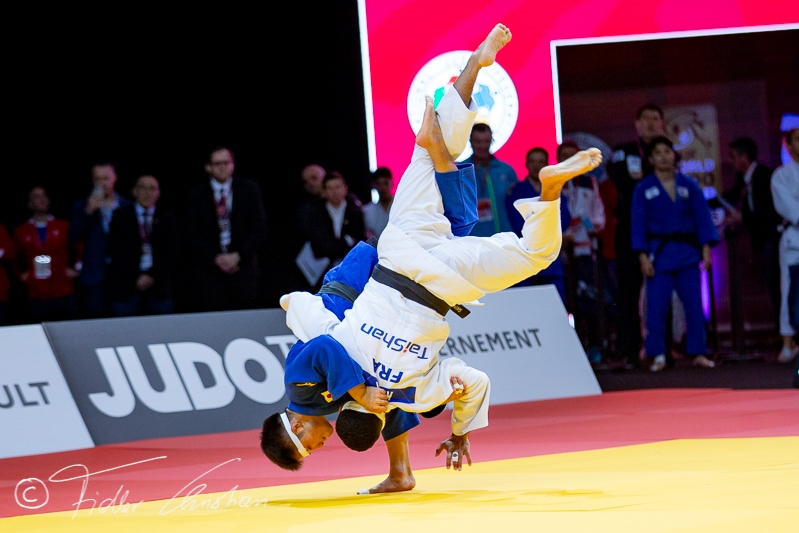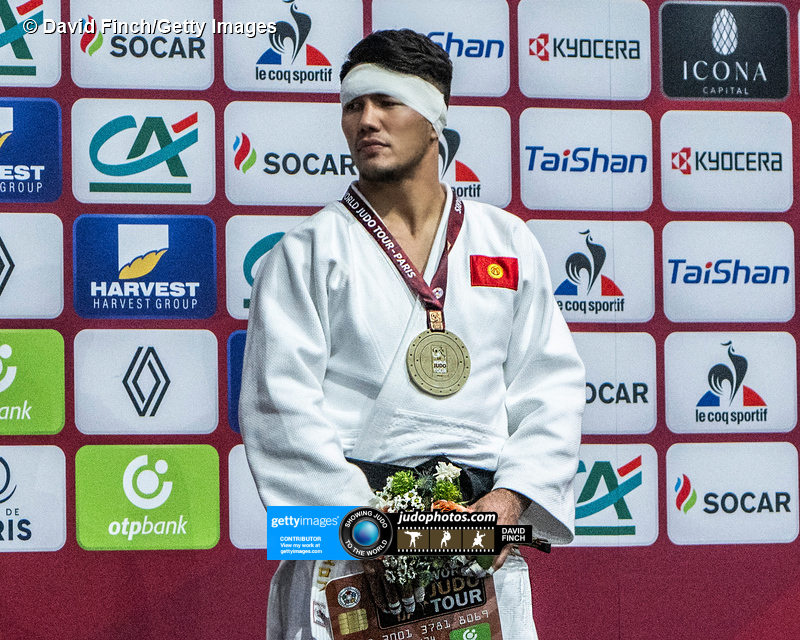Olympic Upsets: Frank Wieneke (LA 1984)
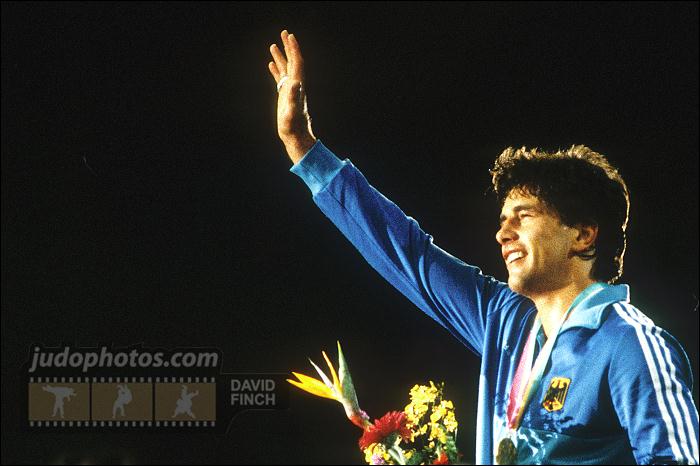
 8 Jul 2023 12:20
8 Jul 2023 12:20
 by JudoCrazy and JudoInside
by JudoCrazy and JudoInside
 David Finch / Judophotos.com
David Finch / Judophotos.com
In the U78kg division, there was only one top favorite for the gold medal: Britain’s Neil Adams. He was the reigning European Champion and although he had gotten silver in the 1983 World Championships, the Japanese player he had lost to, Nobutoshi Hikage, had not been selected for the LA Games. Today is his birthday!
Adams was one of those dominant players who seldom lost in competitions. Besides Hikage, there were only two other players he had lost to in recent years: Shota Khabarelli in the 1982 European Championships and Ezio Gamba at the 1980 Olympics.
However, neither one would pose a challenge to him in LA. The Soviet Union had decided to boycot the Games, so Khabarelli was out. And Gamba, at U71kg, was in a different weight class (after the Moscow Games, Adams had moved up to U78kg).
With his top three rivals from Japan, the Soviet Union and Italy, out of the picture, his path to Olympic glory seemed wide open.
There were some other strong players of course. The Japanese representative, Hiromitsu Takano, had beaten Hikage in the Japanese trials, so he had to have been very good. Adams had not fought him before. Then, there was Mircea Fratica of Romania, a former European Champion. The powerful Frenchman Michel Nowak also couldn’t be underestimated.
At 7 August 1984 nobody thought Frank Wieneke of West Germany would be a threat to Adams though. He was a European Junior silver medalist in 1981 but for all intents and purposes, Wieneke was a virtual unknown as the start of the day.
But what a difference a day makes.
Prior to the Olympics, Wieneke had lost to four players: Adams and Khabarelli at the 1983 European Championships; Filip Lescak of Yugoslavia at the 1983 World Championships; and Vladimir Barta (the current IJF Head of Sports) of Czechoslovakia at the 1984 European Championships.
As it turned out, both Khabarelli and Barta would not be in LA due to the Soviet boycott of the Games, and Lescak was on Adams’s side of the draw (he would be beaten by Adams in the semifinal). So, he didn't have to face any of these players leading up to the final. That didn’t mean Wieneke had it easy though. Japan’s Takano, the tough Canadian Kevin Docherty and Romania’s Fratica were all on his side of the pool.
Wieneke’s first round opponent was a relatively easy one, in the form of Gaston Oula (CIV) but when he scored against Oula with a kosoto twitch technique, the referee mistakenly gave it to the African. This was quickly corrected by the corner judges. But then the referee made another mistake when he failed to give Oula a penalty for stepping out. Again, the corner judges had to intervene to correct the situation. Perhaps fed up with the situation, Wieneke settled the matter once and for all by throwing Oula with uchimata for ippon.
His second match was against Takano and theirs was a fierce battle. Neither player was able to score when in the final minute of their contest, Wieneke came in with what looked like a relatively weak, one-handed uchimata. Takano easily rode that technique but then walked straight into a follow-up technique: kosoto-gari for yuko. This was enough for Wieneke to win the match and score the first big upset of the day. Only later that evening would the judo world realize that Wieneke's winning uchimata combination was anything but a fluke.
Wieneke had a surprisingly difficult time with Walid Mohammed (EGY) but eventually managed to secure a yuko from drop seoi-nage. Mohammed would go on to get a keikoku penalty for attempting tomoe-nage outside the contest area.
This win took Wieneke into the quarterfinal, where he would face Docherty. Their match was mainly a battle of grips and neither one was able to score. In the end, Wieneke won through a single penalty incurred by Docherty for passivity.
Wieneke then defeated Romania’s Fratica in the semifinal by the skin of his teeth, through a hantei decision. It didn’t matter though. He was through to the final.
That Adams would be the eventual winner was but a formality. Instead, it turned out to be the biggest upset of the tournament, and quite possibly, the biggest upset in Olympic history.
Adams had beaten Wieneke the year before, at the 1983 European Championships. Although he had failed to score in that match-up, the Briton easily won the decision as he was by far the more dominant and superior player.
As the final got underway, it certainly looked like it would be a repeat of their European Championship match. Adams was clearly the aggressor, attacking Wieneke with a succession of techniques: tai-otoshi, drop sode-tsurikomi-goshi, tomoe-nage, andother tai-otoshi and kouchi-gari. His flurry of attacks often knocked Wieneke down but none scored. If this had continued, Wieneke would have either been penalized for passivity or would have lost by hantei.
Wieneke’s first attack happened at the edge of the mat. Just as he had done earlier to Takano, Wieneke came in with a weak-looking, one-handed uchimata. There was no way such an attack would throw Adams, who rode it easily. But Wieneke immediately dropped down low and launched him into the air. A loud thud reverberated across the arena and the referee gave an ippon.
The entire crowd was as stunned by that move as was Adams, who up to that point had never been thrown for ippon in any international competition. In fact, as mentioned earlier, Adams hardly ever lost matches. But this time, he was defeated by a complete unknown from West Germany in the most spectacular way.
 like
like
 share
share
 - IMASHEV, Aibek (KAZ)1.jpg)
| Result | City | Date |
|---|---|---|
| 1 | Zagreb | 26 Apr |
| 3 | Belgrade | 2023 |
| 2 | Montpellier | 2023 |
| 3 | Budapest | 2023 |
| 1 | Doha | 2023 |
| Result | City | Date |
|---|---|---|
| 1 | Tashkent | 2 Mar |
| 1 | Paris | 3 Feb |
| 1 | Budapest | 2023 |
| 2 | Tokyo | 2023 |
| 5 | Montpellier | 2023 |

